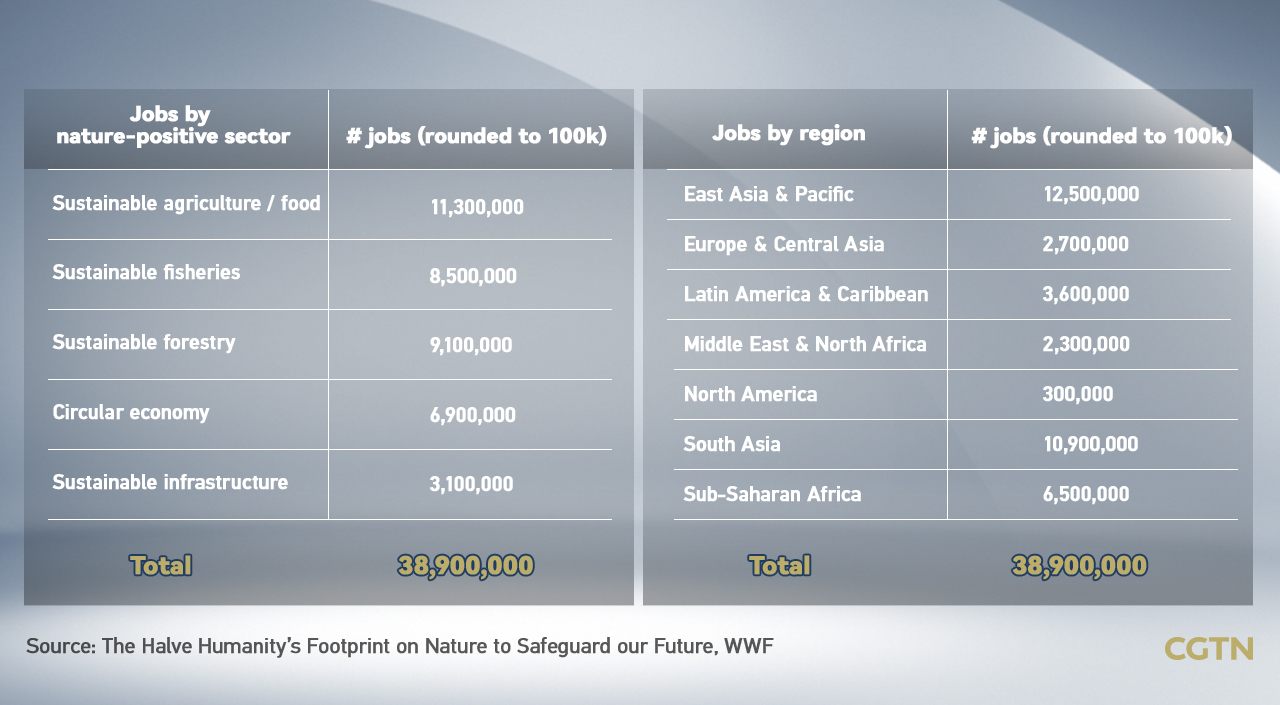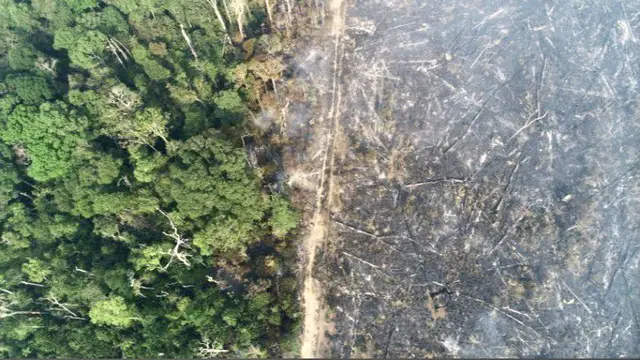
Diverting one year's worth of subsidies allocated to industries notorious for harming nature toward ecosystem-friendly projects could create 39 million jobs, a new study said on Thursday.
A majority of these jobs will be available in the sustainable agriculture and fisheries sectors, the study by the World Wide Fund for Nature (WWF)said.
Governments dole out more than $500 billion annually in subsidies to industrial agriculture, meat production, mining and fishing – industries that have contributed to deforestation, emission of climate-harming gases and pollution of the air, soil and oceans, it said.
While large-scale planting of palm, soy and cocoa and animal farms have wiped out vast tracts of forests, mining inside the Amazon has led to irreparable loss of plants and animals.
Reallocating the subsidies awarded to these industries should be diverted to avert ecosystem collapse and stall the climate crisis, said Marco Lambertini, director general of WWF International.
" It would also help us transition towards a nature-positive economy and reform our current unsustainable production and consumption model," Lambertini said.
Massive scale of biodiversity loss
According to the Living Planet Index, unsustainable industrial practices have decreased animal populations by 68 percent since 1970. In the Latin America and Caribbean region, the animal population has declined by nearly 94 percent.
Forests are also facing one of the worst consequences, with nearly half of the world's tropical forests decimated since the 1960s, primarily because of land clearing for animal farming and commercial agriculture.
The forest cover loss has wiped out critical habitats and migration routes of wild animals. And overfishing has impacted two-thirds of the marine environment.

Prediction of sectoral and regional breakdown of job availability if subsidies are provided to nature-friendly sectors, according to WWF. /CGTN
Biodiversity loss on such a massive scale has increased the interaction between animals and humans, resulting in frequent outbreaks of zoonotic diseases.
A similar report by the World Economic Forum had projected that nature-positive solutions could create 395 million jobs by 2030 and $10.1 trillion in business opportunities. But the ongoing COVID-19 pandemic and the world's failure to meet the Aichi Biodiversity Targets have put governments under pressure.
Eyes on China meeting for ambitious biodiversity target
The WWF report comes just ahead of the third round of talks for the UN global biodiversity negotiations beginning online next week.
Final negotiations on the draft are supposed to take place at the UN Biodiversity Summit due to be held in Kunming, China, in April next year. The summit has been postponed thrice because of COVID-19. The talks will be held in two phases, with an online inauguration in October and an offline meeting in April, the UN Convention of Biological Diversity said on Wednesday.
Negotiators from more than 160 countries would meet to agree upon a new global framework to prevent biodiversity loss. Environmental groups are pushing for a 30 percent boost to global biodiversity by 2030.
"The upcoming negotiations present an opportunity for world leaders – eighty-nine of whom have endorsed the
Leaders' Pledge for Nature
committing to reverse biodiversity loss by 2030, Lin Li, director of Global Policy and Advocacy at WWF International, said.
"Countries should adopt a milestone to halve the footprint of production and consumption by 2030 to commit to a future that does not just limit damage to nature, but actively safeguards and improves it for future generations," Lin added.
(Cover Image: Amazon jungle burns as it is cleared by loggers and farmers near Apui, Amazonas State, Brazil, August 11, 2020. /Reuters)
 简体中文
简体中文

